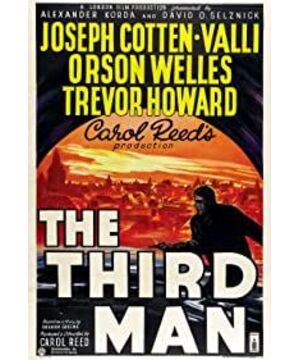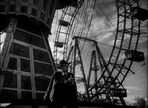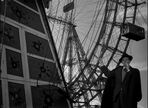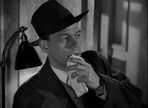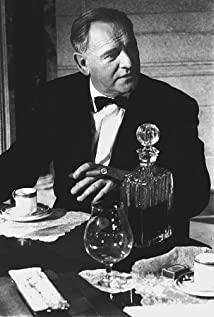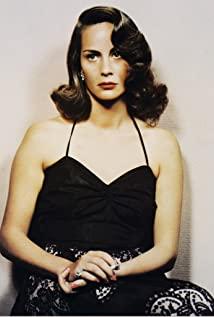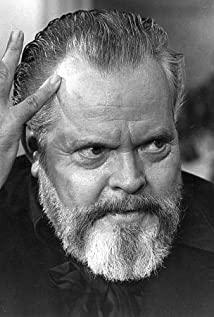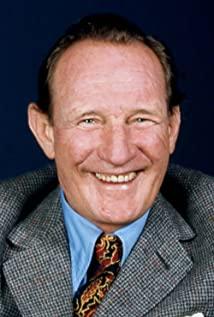He didn't grow up,
but the world around him grew old
and buried him
1 It
's also a pleasure to watch Orson Welles play a villain, and the sly eyes are hard to recall The serious "Citizen Kane", especially the "hide-and-seek game" played by Wells at the end of the outlaw Harry in the sewers and the police is even more wonderful, showing great confidence in the panic, even if desperate, he will catch The last hope, which is Harry's desperate spirit, is in line with Kane's tenacity.
The director of the film, Carol Reed, is said to be a giant of film noir. I want to talk about light topics, starting with the soundtrack.
The soundtrack at the beginning of the film is reminiscent of the words Woody Allen and Manhattan. The former director used this tune in the film, while the latter is the impression of the city that the song gives, the laid-back and light-hearted. The melody can only reveal the unique charm of Manhattan, the central city of New York. The soundtrack serves the whole film. Martin in the film is a down-and-out writer from the United States. The agile and clever image of the outlaw Harry is also consistent with this song.
Martin made a living by writing detective works. At the lecture invited by the host, this "underachiever" (detective novels have always been rejected by orthodox literature) writer was very embarrassed: the audience was full of "pedantic" literature lovers, in order to cope with At the request of the host, Martin gave a perfunctory speech on literature, but he was criticized by the guests because of the flaws. One of the men asked: Where did you put James Joyce? Martin was immediately speechless. Did he really know nothing about Ulysses and stream of consciousness, or was he just being sloppy on purpose? Obviously, this scene contains some kind of irony, and both the "fake literati" Martin and the pedantic literature lover are the targets of irony.
2
When Martin first arrived in Vienna, he thought that Harry was still a simple boy. With the ups and downs of the plot, the audience knew that Harry, who was mourned at the beginning of the film, was not actually dead. He made an accomplice become a scapegoat to help him cover up the crime of reselling penicillin. Considering that the film was filmed in 1949, just after World War II, Austria, which was once an Axis power, was divided and occupied by the Allies, the background of the alternating old and new eras enveloped the film with a natural black atmosphere: wearing a domineering and domineering picture with the words MP (Allied Military Police) on the head. The general fear and apprehension of the soldiers and the people of the occupied countries fills the streets at night with the possibility of being caught in jail or attacked by gangsters. What's more, Harry murdered his accomplice Harbin during the day, which shows the poor social security at that time.
For countries whose sovereignty has been violated, a harmonious and stable social environment can only be an extravagant talk. Under such a background, Harry abandoned the pursuit of a dreamer and began to do illegal activities. Although the reselling of penicillin in the Allied army was "excusable" in that era (forced by life, the patient needed it), the substandard reselling products made many young children suffer. Illness, this behavior thus becomes an unforgivable crime.
Maybe Harry will never understand his guilt, because he is still a child, as his girlfriend Schumt said in the film: he has not grown up, but the world around him is getting old. Then buried him. This seemingly poetic confession makes people feel pity for Harry, but it cannot erase Harry's sense of responsibility and moral decay as a citizen.
Women are affectionate, and even though Harry doesn't care about him, Schimt insists on loving him. Emotional love obscures the path to escape and find a new life. At the end of the film, Martin, who has always been affectionate to Schimmut, stopped by the roadside for a long time and waited for her to come, but the stubborn woman went straight ahead without even looking.
It's hard for a writer like Martin to understand the outlaw Harry and his lover. Maybe it's because of his career. Writers can only chase excitement and romance on paper. In reality, outlaws practice every step of the way. death, and there is always a woman who is devoted to it.
View more about The Third Man reviews


